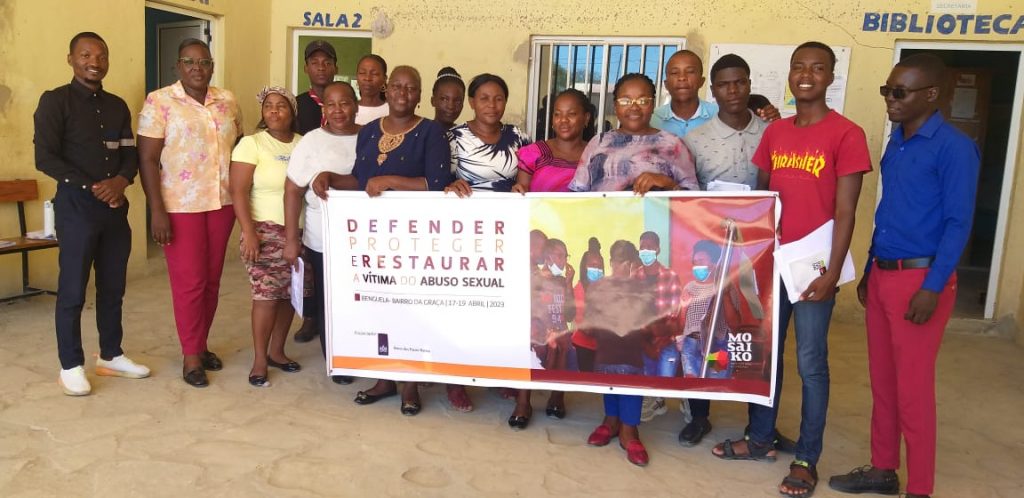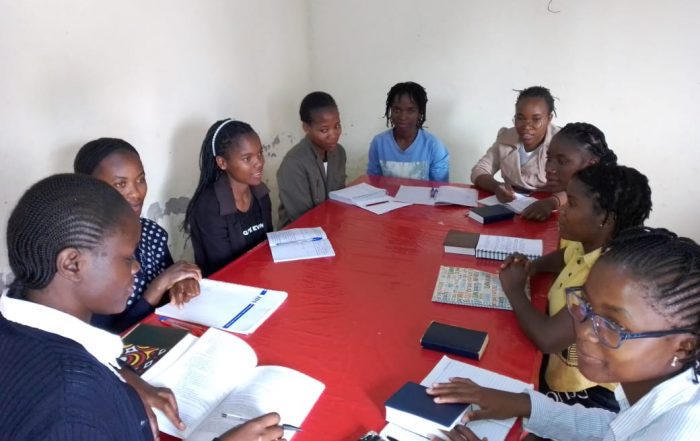TO DEFEND, PROTECT AND RESTORE THE VICTIM
- Hnasmdro
- mayo 8, 2023
- MDR Experiences
- 0
- 327

I write from the Barrio de la Graça, in the outskirts of Benguela, a neighborhood difficult to access in the rainy season, with a high rate of juvenile delinquency, where the Mosaiko team, (NGO of our Dominican Friars in Angola) composed of three people, including myself, are facilitating a training with the theme: “Defending, protecting and restoring the victim of sexual abuse”. The training aims to contribute to improve the service of protection of victims of sexual abuse in the formal and traditional justice systems and to bring about a change of behavior in the communities.
The project is being implemented by Mosaiko in four municipalities (Luanda, N’Dalatando, Cubal and Benguela) in three provinces (Luanda, Cuanza Norte and Benguela). It was designed in view of the high number of cases of sexual abuse and assault, the victims of which are mostly minors (children and adolescents) and the abusers are often people close to the victims, including their own parents, grandparents, uncles, aunts and uncles or cousins. The situation is worrisome because reports are coming in from all sides calling for faster justice and a stronger voice to ensure protection and proper follow-up in a timely manner.
Mosaiko, as a Dominican Association by origin, in its mission as a promoter and defender of human rights, challenged itself to do something so that the cases are denounced, the victims are no longer silenced and are more protected and defended. On the other hand, the abusers are held accountable for their actions; that the laws are enforced, and the institutions of law fulfill their role of guarantor, defender and protector of the people who are the main wealth of a country.
For three days we worked with about 30 participants: young people and adults, community members and representatives of different state institutions, political parties, churches, traditional authorities, police, groups, and movements, on the sexual crimes provided for in the Angolan Penal Code. It aims to help raise awareness of the fact that the Code does not only consider sexual crime as the sexual act with penetration but, any and all acts committed through gestures, touching private parts, harassment, exhibition of sexual organs, conversations that make the other person feel uncomfortable, sexual harassment, whether with adults without their consent, minors, disabled, vulnerable persons, etc.
Thus, in accordance with the rules of the Penal Code, an analysis of the context of the community is made from which we seek to look at the defense mechanisms and institutions closest to the citizens. To end, in a gesture of commitment, the participants drew up an action plan to disseminate the knowledge acquired.
As MDR, it has been a pleasure and a great opportunity to join those who challenge themselves to do something to promote and defend the rights of the most disadvantaged, to fight for their cause and to represent them before the institutions of justice (courts and police stations).
My appeal in this training as a trainer and MDR, is that the institutions seek strategies, work in network, create shelters and spaces for shelter and support for victims, to ensure greater and effective protection and defense, since the consequences of sexual abuse are not only physical, but above all psychological. It is the dignity of the person that is at stake. “Sexual abuse is a crime – report it! “
It was a great pleasure to share with you my experience not only work as well as mission. Thank you!
Sister Immaculata
Luanda – Angola


